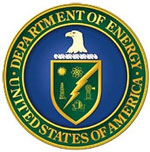A pipeline for ethanol from the Midwest to the East Coast is a viable project, if certain conditions are met, according to a report by the Department of Energy (DOE).
 In the report titled “Dedicated Ethanol Pipeline Feasibility Study,” which was required under the Energy Independence and Security Act of 2007, DOE concludes that “in spite of the documented challenges and risks, a profitable, dedicated ethanol pipeline is feasible under certain scenarios. A pipeline would enhance the fuels delivery infrastructure, reduce congestion of rail, truck, and barge transportation, and would reduce greenhouse gas emissions when compared to current delivery methods. The faster product delivery cycles, more reliable delivery schedules, and increased safety will enhance the flexibility to accommodate any significant expansions in ethanol production and demand in the future.”
In the report titled “Dedicated Ethanol Pipeline Feasibility Study,” which was required under the Energy Independence and Security Act of 2007, DOE concludes that “in spite of the documented challenges and risks, a profitable, dedicated ethanol pipeline is feasible under certain scenarios. A pipeline would enhance the fuels delivery infrastructure, reduce congestion of rail, truck, and barge transportation, and would reduce greenhouse gas emissions when compared to current delivery methods. The faster product delivery cycles, more reliable delivery schedules, and increased safety will enhance the flexibility to accommodate any significant expansions in ethanol production and demand in the future.”
One of the challenges is that the pipeline, at a projected cost of $4.25 billion, would need to transport 4.1 billion gallons of ethanol each year over its 40-year lifespan to be economically feasible without “major financial incentives.” That volume exceeds projected demand in the target East Coast service area by 1.3 billion gallons.
Senator Tom Harkin (D-IA) and Congressman Leonard Boswell (D-IA) suggest that the pipeline could be developed with federal support in the form of a loan guarantee. “By providing federal loan guarantees for biofuels’ pipelines, we can attract private investment in large infrastructure development projects, create good-paying jobs and further move our nation towards energy independence and security, and all with minimal taxpayer investment,” Harkin says. Boswell, who authored the Renewable Fuel Pipeline Act of 2010, says the pipeline would have significant benefits. “In addition to reducing greenhouse gases emitted during truck and rail transport of biofuels, it would also reduce the overall cost of these renewable fuels to consumers outside of the Midwest,” he said.
Ethanol producer POET and Magellan Midstream Partners, which have formed a partnership to look into building such an ethanol pipeline, were pleased with the government report. “While our project differs from the hypothetical project considered within DOE’s study, we believe the DOE’s conclusions are directionally correct: a large scale pipeline project is feasible under certain conditions and that a federal loan guarantee is necessary to move forward,” reads a joint press release from the companies. “In addition, the DOE confirms that transporting energy via pipelines has multiple benefits such as reducing congested highway and rail systems while reducing green house gas emissions when compared to other modes of transportation.”
The POET/Magellan project is based on a smaller capital cost of $3.55 billion and similar demand.

